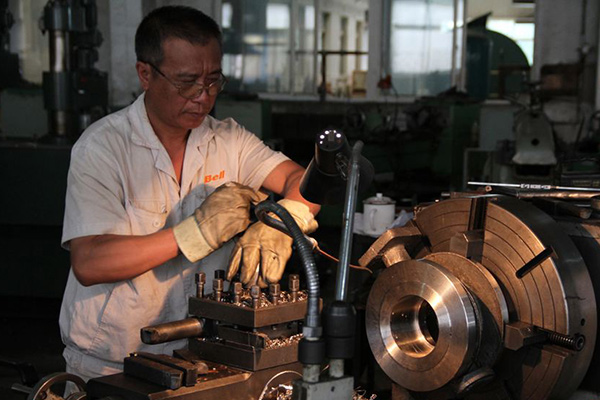
[Photo/CRI]
China has pledged to improve vocational education to tackle the country’s shortage of skilled workers.
On March 15, the Ministry of Human Resources and Social Security (MHRSS) called a meeting to discuss how to fully implement the 13th Five-Year Plan for China’s vocational education. The meeting covered how to raise the core competitiveness of vocational schools, strengthen recruitment and training, and raise the wages of highly skilled laborers.
By the end of 2015, there were 2,545 vocational schools in China, including 434 technician schools with 3.22 million students. The employment rate for graduates of these schools was as high as 97.4 percent.
Nevertheless, China is currently in need of nearly 10 million highly skilled workers, according to reports. That group accounts for only 5 percent of all industrial workers in the country, much lower than the same ratio in Japan and Germany, where skilled workers account for 40 percent and 50 percent of industrial workers respectively, according to Li Shouzhen of the All-China Federation of Trade Unions.
The number of skilled workers was even smaller 10 years ago. A survey that polled 60 factories found that senior technicians accounted for only 0.1 percent of factory workers. Technicians and highly skilled workers made up 1.1 and 6.1 percent respectively.
Earlier this month, Premier Li Keqiang delivered the 2017 government work report, pledging to promote craftsmanship and foster a culture in which laborers display a strong work ethic and tirelessly seek improvement. In last year’s government work report, the Premier also encouraged enterprises to use flexible and individualized production processes, and to foster the spirit of craftsmanship so that more types of products and products of a higher quality, would be made.
At a symposium on highly skilled talents in Beijing in December 2016, Vice-Premier Ma Kai also noted that skilled workers are a major driving force behind technological improvement, economic growth and social progress.
The 13th Five-Year Plan demands improved salaries and paid vacations for skilled professionals. It also requires big cities to relax their policies for granting local household registration to skilled workers, which can help to raise workers’ economic and social status.
